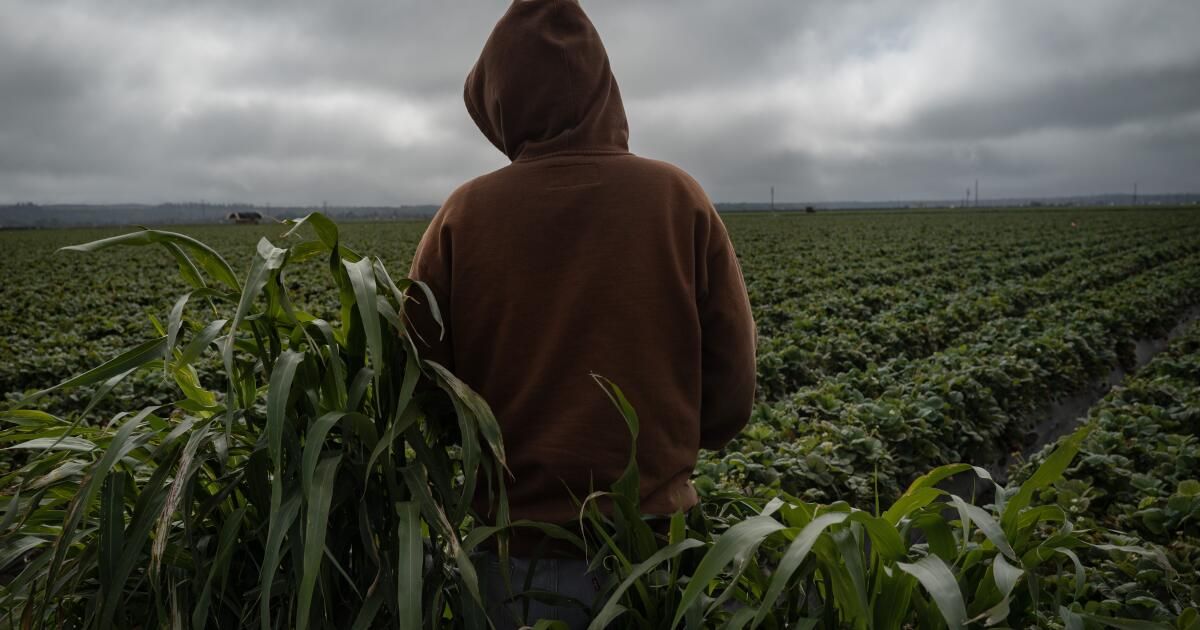to the editor: After reading this article, my first thought was that I'm shocked that California's $61 billion agriculture industry can fail on so many levels to protect the most vulnerable in its workforce: children (“California's child farmworkers: exhausted, underpaid and toiling in toxic fields” November 20). Then it occurred to me: perhaps that is precisely the driving force behind the industry's wealth and profits in the first place.
The article points out the systemic failures of several oversight agencies that have allowed the industry to turn a blind eye to regulations such as work permits, heat illness training, access to shade and cold water, and exposure to pesticides. These violations impose dangerous conditions, not only for the adults in the camp but also for their children. It is heartbreaking to listen to these children share their dreams of a better life, aspiring to have careers in medicine or the military, for example.
I wonder if a policy to hold state agencies more accountable for enforcing labor violations might have a double benefit when it comes to social justice. Making a concerted effort to recover uncollected fines would incentivize industry leaders to protect the health and well-being of their workforce while providing resources to fund child workers' opportunities for a better future.
This could be effective for several reasons. First of all, it would pay for itself. Second, it would create incentives for the agricultural industry to be responsible for the health and safety of its workers. And third, it could go toward creating a grant, perhaps through the UC system, to allow child field workers the opportunity to pursue their career dreams.
Carolyn Franco, Saint Michaels, Maryland.
..
to the editor: We were not surprised by the revelation about child farm workers. My organization has been dedicated to eradicating exploitative child labor since its founding in 1899. We regularly host summer interns (former child farm workers) who describe the unbearable heat, 10-hour days, exposure to pesticides, poverty wages, and lack of fresh water and toilets.
California can address this problem by raising the minimum age for working in the field from 12 to 14 years old. Federal legislation to achieve this: the Children's Law for Responsible Employment – was reintroduced on November 20 by California Representative Raúl Ruiz.
California is not living up to its reputation for treating farmworkers fairly, adequately caring for their youth and vulnerability. It was empowering to read these powerful stories juxtaposed alongside a quote from the California Farm Bureau that denies the obvious: the ubiquity and tragedy of children picking our fruits and vegetables.
Sally Greenberg, Washington, D.C.
This author is president of the Child Labor Coalition and executive director of the National Consumers League.
..
to the editor: Having worked as an organizer for the United Farm Workers union in the 1960s and currently with the National Day Labor Organizing Network, I see clearly that there is very little state enforcement of labor laws in California. People want cheap labor and they will always get it. But my advice is: Don't lament, don't complain, get organized!
Brand Day, Carlsbad












